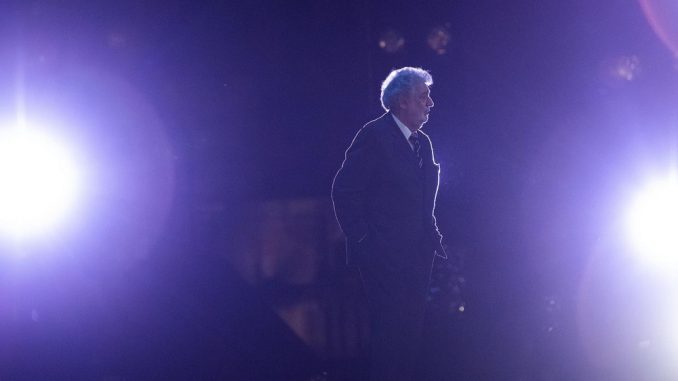
The denunciations against famous tenor Placido Domingo have revived the debate about misogynistic aggressions.
In the heat of the fourth feminist wave, the world campaign #MeToo has not stopped in Hollywood or Cannes. A few days ago, eight singers and a ballerina have denounced Placido Domingo of several acts of sexual harassment from 1980 onwards.
The women assured that he pressured them to engage in sexual relationships and when he felt rejected, he punished them at work.
Only Patricia Wulf accepted to be identified, the other women refused in fear of suffering retaliations. Backstage staff, voice teachers and an administrator assured that the issue was an “open secret”.
In the United States there were cancellations of concerts. “The Opera of San Francisco prioritizes creating a safe space where everyone can focus on their work and art, and in which colleagues are treated with respect, dignity and companionship”. The Opera of Los Angeles, where the tenor is general director since 2000, will open an investigation.
Placido Domingo responded: “The allegations from these unnamed individuals dating back as many as 30 years are deeply troubling, and as presented, inaccurate. Still, it is painful to hear that I may have upset anyone or made them feel uncomfortable — no matter how long ago and despite my best intentions, I believed that all of my interactions and relationships were always welcomed and consensual. People who know me or who have worked with me know that I am not someone who would intentionally harm, offend, or embarrass anyone. However, I recognize that the rules and standards by which we are — and should be — measured against today are very different than they were in the past. I am blessed and privileged to have had a more than 50-year career in opera and will hold myself to the highest standards”. There are those who defend him as “a gentleman and a great colleague” and consider the accusations to be “defamations”.
The accusations and the self justifications make an impartial and transparent investigation necessary. This will be hardly guaranteed by the patriarchal courts, more prone to ignoring demands than to investigate the accused, to leave the victims unprotected more than punishing the guilty.
At the same time, we must also emphasize that sexual harassment cannot be encapsulated as a problem that takes place only among wealthy and famous artists, singers and models. With less transcendence and partial statistical data, it is an issue that affects women worldwide. Racialized, immigrant, young, poor, precarious worker and rural women are particularly helpless.
On the street, in the public transport and spaces, these aggressions mean that women cannot walk in peace, because any stranger occupies their individual space without their consent. In the workplace, harassment is defined as mobbing and is not always penalized. The abuse of power by a boss or someone with prestige, the fear of complaining because of the possible consequences, the lack of channels to do so or subsequent ridicule are elements that condition the actions of women, right where they go every day to make a living. More awkward, impossible to imagine.
Despite the existence of sectors with different opinions, the women´s movement strives to fight against shows misogynistic violence and harassment together. We must give this struggle a common strategy: the defeat of oppression and exploitation. Without pause, side by side with the mobilized working class until the capitalism and patriarchy fall together.
Flor Salgueiro Carral








